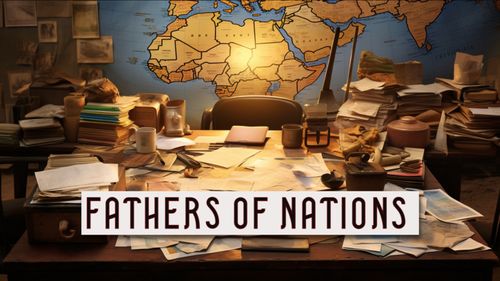Fathers of Nations explained: Rapid book summary and analysis
Jan 04, 2024 · 2 mins read
0
Share

"Fathers of Nations" by Paul B. Vitta is a 2013 satirical novel set in contemporary Africa, offering a biting critique of the leadership crisis in the continent, marked by poor governance, corruption, and disillusionment.
Save
Share
The novel introduces us to four main characters: Professor Karanja Kimani, Comrade Ngobile Melusi, Pastor Chineke Chiamaka, and Dr. Abiola Afolabi, each representing different facets of African society.
Save
Share
Professor Karanja Kimani's story mirrors the intellectual's struggle in Africa, facing personal loss and disillusionment in the face of political turmoil.
Save
Share
Comrade Ngobile Melusi embodies the spirit of a freedom fighter whose sacrifices for independence are overshadowed by post-independence betrayals and tribal divisions.
Save
Share
Pastor Chineke Chiamaka highlights the complex relationship between faith and politics, as he speaks out against government corruption and faces incarceration.
Save
Share
Dr. Abiola Afolabi, with his international exposure, symbolizes the brain drain phenomenon, torn between opportunities abroad and his patriotic duties in Africa.
Save
Share
Engineer Seif Tahir's character delves into the interplay of politics and personal ambition, revealing the precarious position of professionals in a system driven by loyalty.
Save
Share
The novel explores themes like leadership crisis, poverty, corruption, neocolonialism, and gender disparities, offering a multi-dimensional view of the issues plaguing Africa.
Save
Share
Vitta – who was born in Tanzania and studied a Ph.D. in physics – paints a stark picture of the disillusionment and despair that pervade many African societies, while also conveying the enduring hope for positive change.
Save
Share
"Fathers of Nations" is not just a story; it's a thought-provoking narrative that challenges stereotypes and encourages readers to engage in critical discussions about Africa's future.
Save
Share
0